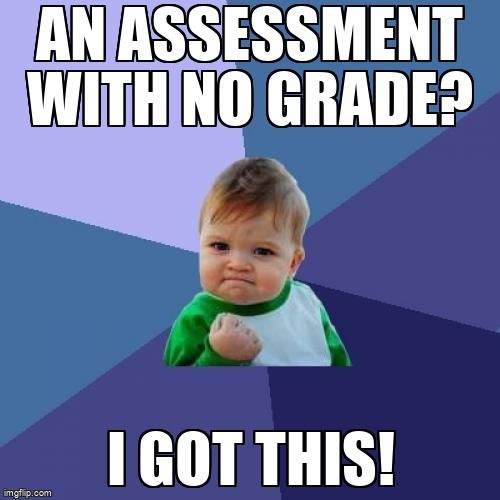Assessment? Is this a fancy name for a test?
No, it's not always a test! An assessment is a vital part of teaching and learning. Its purpose is to:
Gather information to understand what students know as a result of their education or experience.
Review multiple sources to develop a learning schedule.
Collect data on student learning and make inferences to improve programs.

Knowing one type of assessment from another can be a helpful way to support your learning. Let's look at two popular types: formative and summative assessment.
Why Do I Need An Assessment?
An assessment identifies your strengths and weaknesses on a specific topic during learning. It considers your readiness based on:
Goals
Objectives
Prior knowledge and experience

Types of Assessments
Formative Assessment:
During learning for needed improvements and not graded
Summative Assessment:
After learning is complete and graded to an objective standard

Quiz
True or false: assessments always require a grade to be effective.
Examples of the Different Types of Assessments
Formative Assessment
Low-stakes quizzes
Reflection journals
Q&A assignments
In-class activities
Observations
 Photo by Antoine Dautry on Unsplash
Photo by Antoine Dautry on UnsplashSummative Assessment
Final exams
Final projects
Term papers
In-class presentations
Performances
 Photo by GoodNotes on Unsplash
Photo by GoodNotes on UnsplashQuiz
You're given homework to answer questions on the chapter. This is an example of what type of assessment?
Benefits of Formative and Summative Assessments
Identify if you should proceed to the next level
Opportunity to refresh your memory of knowledge
Offers variety from traditional testing

If Assessments Are About Learning, Why Do I Have To Get A Grade?
Grades give you an idea of where you stand on a topic. They help you to measure and track your progress.

Take Action

Your feedback matters to us.
This Byte helped me better understand the topic.
